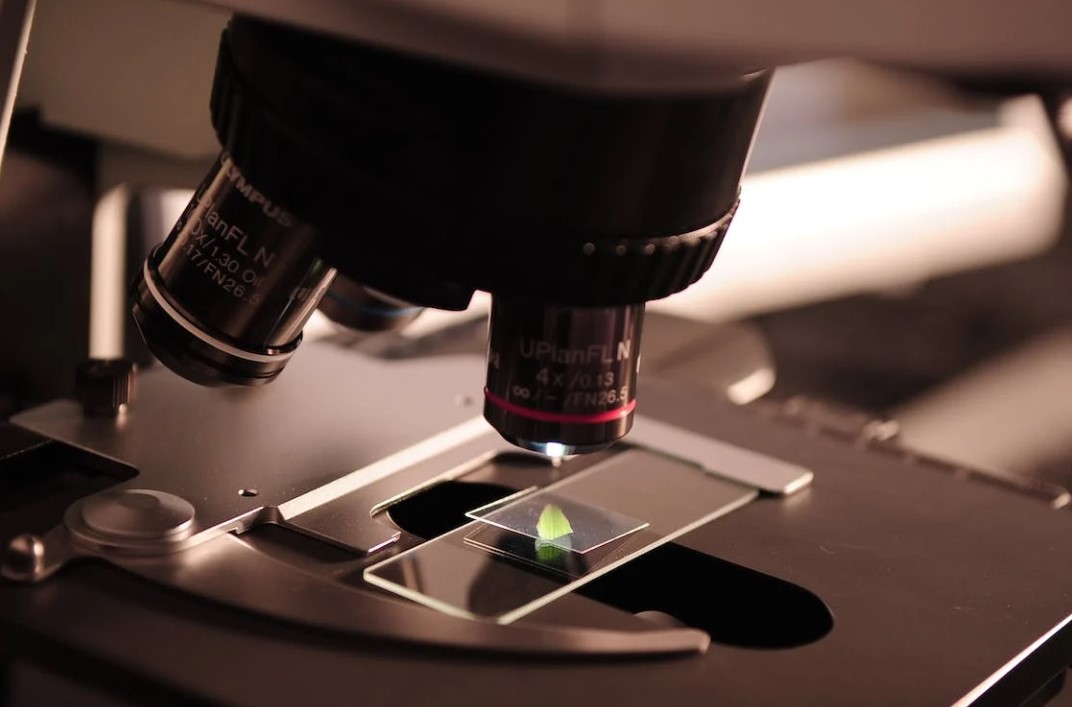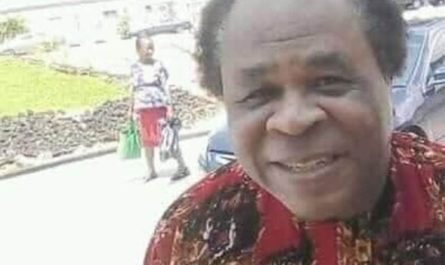Igbo scientists and inventors have distinguished themselves from time immemorial and almost gone largely noticed. A good number of them are world renowned and gained recognition far beyond the shores of Nigeria.
Igbos have made significant strides in mathematics, computing, physical, environmental, biological, engineering, medicine, agricultural and all fields of science. They have been behind the wheel long before the Civil War till this day.
We will take a look at three Igbo scientists whose work has gained global recognition for excellence.
Philip Emeagwali is a largely self taught scientific genius who specialises in extremely complicated supercomputing and internet research.
He was born in 1954 and had quite a humble background. He was raised in Onitsha, Anambra State, Nigeria. His father challenged him on a daily basis to solve at least a hundred mental mathematics questions.This skill would become very important in his career as a computer scientist.
Emeagwali became a calculating prodigy and at the age of 10, when he got a perfect score in mathematics at his high school entrance exam, he was accused of fraud and disqualified.
During the Nigerian civil war, the Emeagwali family fled to eastern Nigeria where they lived as refugees and almost died of starvation. Phillip’s job as a cook in the Biafran army helped him survive the war.
He would later gain a full scholarship to Oregon State University eaning him a major in mathematics, proceed to George Washington University for two Masters in civil and marine engineering, another Masters in Mathematics from the University of Maryland and a PhD in Civil Engineering (Scientific Computing) from the University of Michigan.
Emeagwalli confessed that he didn’t really like computers and avoided them because he found them complicated to use. HE would later develop a keen interest in using them when he began to realise how spectacular they were in solving the complex calculations in his work.
He is called the father of the internet for a good reason. After reading a science fiction article in 1922, he created what he called a HyperBall international network of computers using 64,000 far-flung processors distributed around the Earth. It was used to forecast the weather. In present times, an international network of computers is called the Internet. Emeagwali accomplished all these at a time when programming was not formally taught in any institution so he trained himself.
He is most recognised for his contribution to the Connection Machine, the fastest computer on earth created from 65,000 computers linked in parallel which could perform 3.1 billion.
Apple and IBM adopted Emeagwali’s technology to create processors with peak speed calculations running into billions and trillions per second.
By applying Phillip’s technology to the petroleum industry, petroleum engineers were able to extract more volumes of petroleum from oil fields and reduced gas prices. This problem was one of the 20 most difficult problems in the computing field by the United States Government.
Phillip has many accomplishments and he has received many awards and honours. In 1989, he won the Gordon Bell Prize. In 1993, Computer Scientist of the Year Award of the National Technical Association. In 1998 he won the Distinguished Scientist Award of the World Bank. In 2001, he bagged the Best Scientist in Africa Award of the Pan African Broadcasting, the Heritage and Achievement Awards plus the Gallery of Prominent Refugees of the United Nations. He has been profiled in the book “Making It in America” as one of “400 models of eminent Americans” as well as the book “Who’s Who in 20th Century America”.
He continues to challenge himself in pursuing intellectual pursuits. He is married to Dale Brown, also a distinguished scientist and they have a son.
Professor Barthlomew Nnaji is a distinguished, world renowned scientist who is Igbo from Umuode in Nkanu East Local Government Area of Enugu State Nigeria.
He is a ‘first’ in several accomplishments including being the first black man to graduate as best student from a then 120 year old St. John’s University and later become a Distinguished Professor of Engineering in the United States, the first Director of the United States National Science Foundation-endowed Centre for Scientific Excellence from Africa, the first winner of Baker Distinguished Research Award (equivalent of the Nobel prize in Industrial Engineering) who is Nigerian, the first African to write what was described as the best book in manufacturing engineering of the year in the world.
Nnaji’s firsts seem unending. He was the first Nigerian to be honoured as African Scientist of the Year by the World Bank and the International Monetary Fund. Even in his birth country, he is the first person from Enugu State to get Nigeria’s highest honour for intellectual and artistic achievement, the Nigerian National Order of Merit, The first Nigerian to build a power plant, the first minister to increase electricity generation in Nigeria to almost 5,000 megawatts increasing power supply across the country in 2012.
Nnaji is an internationally sought after consultant in specialties which include Robotics, Computer Aided Design (CAD) and Automation. He created the term geometric reasoning which is the idea that most things we operate have a geometric configuration. Nnaij is also one of the innovators of the e-design concept which enables product design engineers to collaborate from remote locations in designing, assembling and testing products on the internet using computers.
Professor Nnaji earned a Bachelor of Science degree in physics at St John’s University, New York USA then a Masters and PhD in Engineering from the Virginia Polytechnic Institute and State University. He has a Post Doctorate Certificate in Artificial Intelligence and Robotics from Massachusetts Institute of Technology, (MIT). He is a Professor of Mechanical and Industrial Engineering at the faculty of Engineering at University of Massachusetts, Amherst. He is a professor and director of the automation and robotics laboratory in the Department of Mechanical and Industrial Engineering at the University of Massachusetts at Amherst.
Barth Nnaji became the Minister of Power in Nigeria in 2011 and resigned unceremoniously a year later because the government reneged on the terms of the agreement during the power sector privatisation of state-run companies designed to address chronic power shortages in the country.
He is married to Agatha, his wife of several years and they have children She is a seasoned entrepreneur with decades of experience in Executive Management positions and is currently the Managing Director of Geometric Power Group as well as the founder and CEO of DewDrop Institute, an NGO specialising in improving the quality of services in the Health & Social Care, and Hospitality Industry.
Professor Francisca Nneka Okeke is from Idemili North, Anambra State, Nigeria. Her father was a graduate of Mathematics and she credits him for encouraging and mentoring her onto her path as a scientist. She was the first woman ever to be the Head of Department of Physics and Astronomy and later become the Dean of the Faculty of Physical Sciences at the University of Nigeria, Nsukka.
She first obtained a Bachelors of Science in Physics then two Master of Science degrees in Science Education and later in Applied Earth Geophysics all from the University of Nigeria, Nsukka.She later went to the University of Tokyo for her postdoctoral work.
She was intentional to prioritise the inclusion of women into the male dominated faculty. She advocated for the female gender and employed qualified women within the faculty.
Professor Francisca devoted a lot of her time into the study of the ionosphere. Her research interest in Solid Earth Geophysics, Atmospheric Physics and Climate Variability created a great foundation for this.For her, it is actually a lifelong passion.UNESCO admits that her geomagnetic research could lead to a better understanding of climate change and help pinpoint sources of dramatic phenomena like tsunamis and earthquakes.
In 2013, her hard work and dedication to this research paid off when she won a hundred thousand dollars cash prize ($100,000) courtesy of the L’Oréal-UNESCO Women In Science Awards in Physical Sciences.She was the sole recipient from Africa and the Arab nations that year. She was also the third Nigerian Laureate to ever win since the prestigious award was established in 1998.
Professor Francisca admits she was fascinated by the atmosphere growing up as a little girl and it sparked her later interest in Physics. She believes science is the key to the growth and development of a nation. She is changing the stereotypical assertion of science being a male domain by sensitising and mentoring girls and women in STEM by organising tutorials in rural areas and girls secondary schools.
She is passionate to see that the gender gap in STEM is abridged and women take key positions in science matters to improve the participation of women in the development of science.
Conclusion
There are thousands more Igbo sons and daughters too numerous to mention who have forayed into science and made significant contributions to not just their local environment but to the world at large.
This is proof that though the Igbos are indeed industrious and entrepreneurial, one additional trait that is largely ignored is their academic prowess.
From a tribe whose youth still to this day, are marginalised with high cut off marks at primary, secondary and tertiary institutions, it is commendable that even with the challenges they face, they still continue to distinguish themselves academically.




